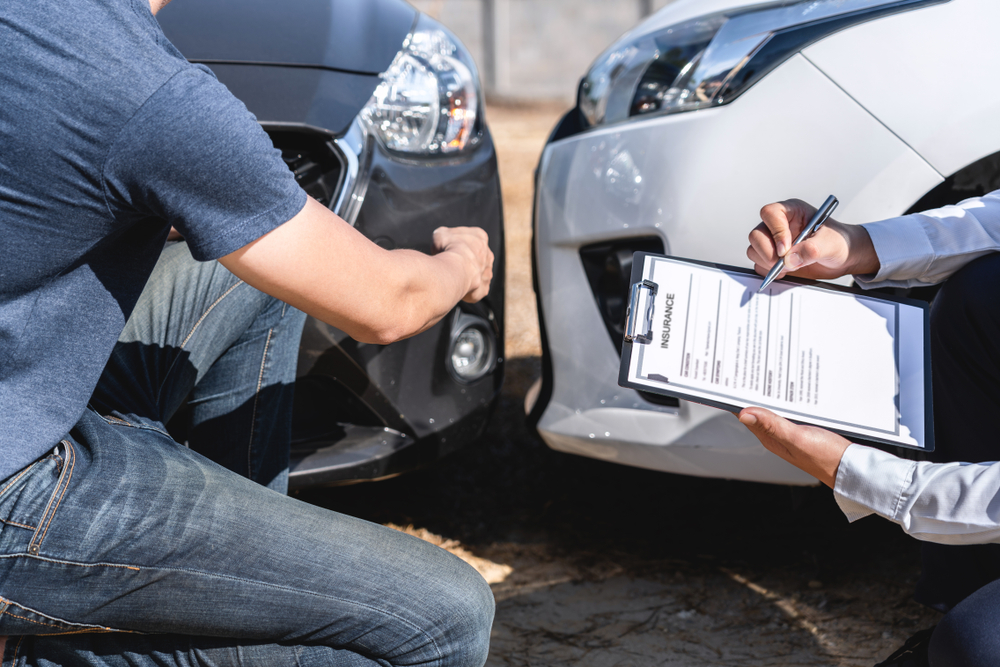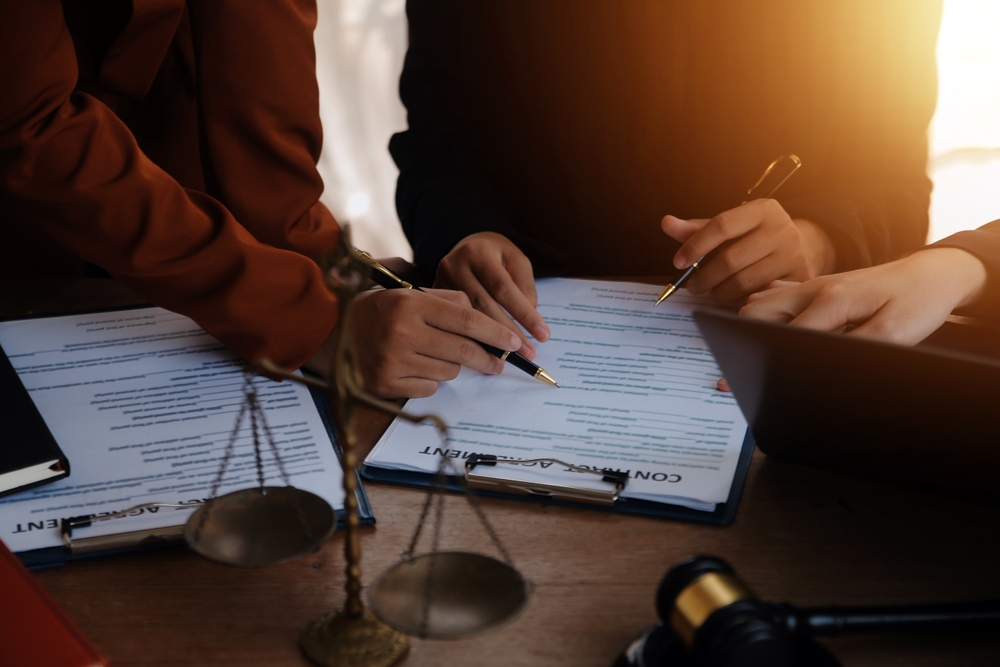Every day in Illinois, hundreds of car crashes mess up people’s lives. In one recent year, Chicago alone saw over 112,000 crashes leading to a record number of injuries (over 25,600 people hurt). If you’re one of them, dealing with the aftermath—the car repairs, the medical appointments, the calls from insurance companies—it’s a headache nobody needs. And underneath all that hassle is probably a nagging question: Can I sue the person who caused this mess?
The short answer is: maybe. Whether you have a case depends on the specific circumstances of your accident. Illinois law has rules about car accident lawyer who can sue and when. Feeling overwhelmed or unsure where to start?
Give Walner Law a call at (312) 410-8496. We can talk through what happened and help you figure out your next steps.
The Basics of Fault
You’ve dealt with the immediate chaos, maybe you’re back home nursing a sore neck and fielding calls. Now the legal stuff starts brewing. Unlike some states where everyone just deals with their own insurance initially, Illinois is an “at-fault” state. This means the person responsible for causing the accident is legally obligated to pay for the damages they caused.
So, the big question becomes: Whose fault was it? Determining fault is the cornerstone of any car accident claim in Illinois. It dictates who pays for the bent metal, the medical bills, the time you couldn’t work, and all the other fallout. Insurance companies and, if necessary, the courts look at evidence like police reports, witness statements, photos of the scene, and traffic laws to figure out who messed up. It boils down to figuring out if someone was negligent.
Did Someone Mess Up? Proving Negligence in Illinois

That word, negligence, gets thrown around a lot, but what does it actually mean legally? Think of it as someone failing to act with reasonable care, causing harm to someone else. To successfully sue after a car accident in Illinois, you generally need to show four things:
- Duty of Care: The other driver had a legal responsibility to drive safely and reasonably. This is pretty straightforward – everyone on the road has this duty to watch out for others.
- Breach of Duty: The driver failed in that responsibility. They did something unreasonable (like speeding, running a red light, texting while driving) or failed to do something reasonable (like not stopping in time, not using headlights at night).
- Causation: This breach directly caused the accident and your injuries. You have to connect their mistake to the crash and the harm you suffered. If they ran a red light and that’s why they T-boned you, causing your broken arm, that’s causation.
- Damages: You suffered actual harm or losses because of the accident. This includes physical injuries, property damage to your car, medical bills, lost income, and other measurable losses.
Proving all four elements is the key to showing the other driver was negligent and therefore legally responsible for the consequences of the crash. Evidence like police reports, witness accounts, photos, and medical records helps build this case.
But What If I Wasn’t Perfect Either? (Comparative Negligence)
Life isn’t always black and white, and car accidents are no exception. Maybe the other driver ran a stop sign, but maybe you were going a little over the speed limit. What happens then? Does that mean you can’t sue?
Not necessarily. Illinois uses a system called modified comparative negligence (codified in 735 ILCS 5/2-1116). Here’s the breakdown:
- You can still recover damages as long as your percentage of fault is 50% or less. If you are found to be, say, 20% at fault for the accident, you can still pursue compensation from the other driver (who was 80% at fault).
- Your compensation will be reduced by your percentage of fault. Using the same example, if your total damages are calculated at $100,000, your final award would be reduced by your 20% fault, meaning you could recover $80,000.
- If you are found to be more than 50% at fault, you cannot recover any damages. If the fault is split 51% yours and 49% the other driver’s, Illinois law bars you from recovering compensation from them.
Insurance adjusters and courts will look at the actions of both drivers to assign these percentages. It’s a reason why admitting fault, even partially, right after an accident is generally not advisable before all the facts are known. This rule highlights how fault isn’t always an all-or-nothing situation.
The Clock is Ticking: Illinois Statute of Limitations
After sorting out fault, there’s another major hurdle: time. You don’t have forever to decide whether to file a lawsuit. Illinois, like all states, has laws called statutes of limitations that set deadlines for initiating legal action. Miss the deadline, and you typically lose your right to sue, no matter how strong your case is.
For car accidents in Illinois, the main deadlines are:
- Personal Injury: You generally have two years from the date of the accident to file a lawsuit for injuries you sustained (735 ILCS 5/13-202).
- Property Damage: You have five years from the date of the accident to file a lawsuit to recover costs for damage to your vehicle or other personal property (735 ILCS 5/13-205).
- Claims Against Government Entities: If the party potentially at fault is a local public entity (like a city or county) or its employee, the deadline is much shorter – usually one year for both personal injury and property damage (745 ILCS 10/8-101).
There can be exceptions (like for minors injured in an accident, where the clock might start ticking when they turn 18), but relying on exceptions is risky. The takeaway is clear: don’t wait. Evidence disappears, memories fade, and legal deadlines approach quickly. If you’re considering a lawsuit, acting promptly is paramount.
What Are You Actually Suing For? (Damages Explained)
So, you’ve established fault, and you’re within the time limit. What exactly can you ask for in a lawsuit? The legal term for what you seek to recover is “damages.” The goal is to compensate you for the losses you suffered because of the accident caused by someone else’s negligence. In Illinois, these damages typically fall into two main categories:
- Economic Damages: These are the tangible, out-of-pocket losses that have a specific dollar amount attached. Think of things like:
- Medical Expenses: Ambulance rides, emergency room visits, hospital stays, surgeries, doctor’s appointments, physical therapy, medications, assistive devices (crutches, wheelchairs), and expected future medical care related to the injury.
- Lost Income: Wages, salary, or other income you lost because you couldn’t work while recovering. This can also include loss of future earning capacity if your injuries permanently affect your ability to earn a living.
- Property Damage: The cost to repair your vehicle or, if it’s declared a total loss, its fair market value before the crash. This can also include damage to personal items inside the car (like a laptop or phone).
- Other Out-of-Pocket Costs: Things like rental car expenses while your vehicle is being repaired.
- Non-Economic Damages: These compensate you for the intangible harms that don’t have a neat price tag but seriously impact your life. Examples include:
- Pain and Suffering: Physical pain, discomfort, and mental anguish experienced because of the injuries.
- Emotional Distress: Anxiety, depression, fear, insomnia, or post-traumatic stress disorder (PTSD) resulting from the accident and injuries.
- Disability/Loss of Normal Life: Compensation for how the injuries affect your ability to engage in daily activities, hobbies, or enjoy life as you did before the accident.
- Disfigurement: Compensation for significant scarring or physical changes caused by the injuries.
In rare cases involving extreme recklessness or intentional misconduct (like drunk driving), punitive damages might be awarded. These aren’t meant to compensate you but to punish the wrongdoer and deter similar behavior in the future.
Dealing With the Insurance Hydra
Soon after an accident, you’ll likely hear from insurance companies – yours and, almost certainly, the other driver’s. While your own insurance company has a contractual duty to you, the other driver’s insurance company does not. Their goal is straightforward: pay out as little as possible on the claim.
Here’s what to keep in mind when the other party’s insurance adjuster calls:
- They are not your friend: Adjusters are trained negotiators. They might sound sympathetic, but their primary loyalty is to their employer’s bottom line.
- You don’t have to give a recorded statement: Illinois law doesn’t require you to provide a recorded statement to the other driver’s insurer. It’s often best to decline politely. Anything you say can be carefully analyzed and potentially used against you later.
- Avoid admitting fault: Don’t discuss fault or speculate about how the accident happened. Even saying “I’m sorry” can be misinterpreted. Stick to the basic facts if you speak with them at all.
- Be wary of early settlement offers: The first offer is frequently low and might not cover all your current and future expenses. Don’t feel pressured to accept anything before you understand the full extent of your damages.
Consider Uninsured/Underinsured Motorist (UM/UIM) Coverage: What if the at-fault driver has no insurance or not enough to cover your damages? This is where your own UM/UIM coverage comes in. Illinois law requires insurers to offer UM coverage and UIM coverage if you buy higher UM limits. This coverage can be indispensable.
Why Bother with a Lawyer? (The Practicalities)
A lawyer familiar with Illinois car accident cases can handle the heavy lifting, letting you focus on recovery. Here’s what they do:
- Investigate: Gather evidence, including police reports, witness statements, photos, videos, and relevant records.
- Determine Fault: Analyze the evidence to establish negligence based on Illinois law.
- Calculate Damages: Work with you (and potentially medical or economic experts) to assess the full value of your claim, including future costs.
- Handle Insurance Companies: Communicate and negotiate with adjusters on your behalf, protecting you from tactics designed to minimize your claim.
- Manage Deadlines: Ensure all necessary paperwork is filed correctly and before the statute of limitations expires.
- File a Lawsuit: If a fair settlement cannot be reached, they will prepare and file a lawsuit.
- Represent You: Advocate for your interests throughout the legal process, including in court if necessary.
Many people worry about the cost. Most personal injury lawyers in Illinois work on a contingency fee basis. This means you don’t pay any attorney fees upfront. The lawyer’s fee is a percentage (commonly around 33%, potentially higher if the case goes to trial) of the final settlement or court award they obtain for you. If you don’t recover compensation, you typically owe no attorney fees. This arrangement allows anyone to pursue justice, regardless of their financial situation.
Gathering Your Arsenal: What Helps Your Case?

While your lawyer will handle the investigation, information you gather (after you’re safely home and have addressed immediate medical needs) can be incredibly helpful. This isn’t about playing detective at the scene but preserving information relevant to a potential lawsuit:
- Keep All Medical Records: Bills, appointment summaries, diagnoses, treatment plans, prescription receipts – everything related to your injuries.
- Track Lost Income: Pay stubs showing time missed, a letter from your employer, or records of lost business income if self-employed.
- Get Repair Estimates: Obtain estimates for fixing your vehicle or documentation if it’s declared a total loss.
- Document Expenses: Keep receipts for rental cars, assistive devices, transportation to medical appointments, and other crash-related costs.
- Preserve Evidence: Keep the damaged vehicle accessible for inspection if possible (don’t repair it immediately without documentation/photos). Save any damaged personal property.
- Log Communications: Note dates, times, names, and summaries of conversations with insurance companies or witnesses. Keep copies of all letters and emails.
Let Walner Law Fight for Your Rightful Compensation
Don’t let the clock run out or personal injury attorney settle for less than you deserve.
Call Walner Law today at (312) 410-8496 for a free conversation about your situation.


 Skip to content
Skip to content




